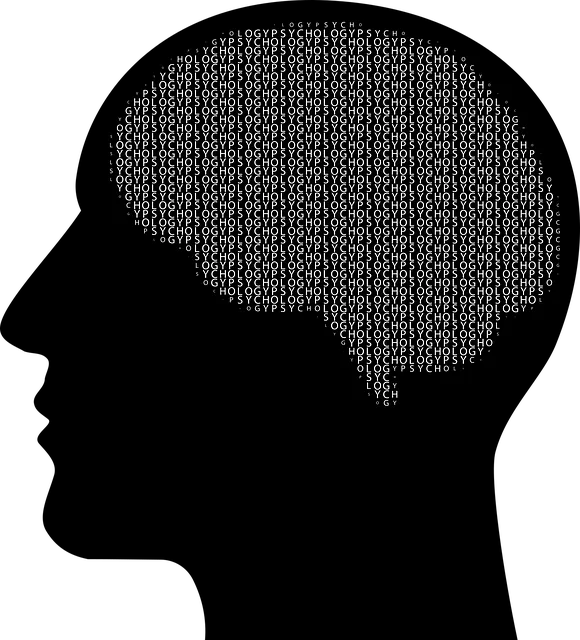Kaiser Permanente's strategic initiative focuses on Resilience, Flexibility, and Mobility (RFM) exercises at its mental health locations in Centennial, enhancing patient care. These personalized resilience-building techniques, including mindfulness and cognitive reframing, empower individuals to manage stress, anxiety, and trauma effectively. Through holistic practices, inclusive community outreach, and evidence-based strategies, Kaiser Permanente promotes mental well-being, fostering a supportive environment for diverse populations in Centennial. Regular assessments measure the success of these programs, ensuring continuous improvement and optimal care.
“Discover how resilience-focused exercises, powered by RFM (Risk, Frequency, and Money), are transforming mental healthcare. This article explores the integration of RFM strategies at Kaiser Permanente’s mental health locations in Centennial, enhancing patient well-being. We delve into the case study, implementation process, engagement techniques, and success measurement of these innovative programs. By understanding RFM’s role, you’ll gain insights into improving clinical settings and fostering resilience among clients.”
- Understanding RFM and Its Role in Resilience Building
- Kaiser Permanente Mental Health Locations: A Case Study
- Implementing Resilience Exercises in Clinical Settings
- Strategies for Engaging Clients and Promoting Mental Well-being
- Measuring Success: Evaluating the Impact of RFM Programs
Understanding RFM and Its Role in Resilience Building

Resilience is a cornerstone of mental well-being, enabling individuals to navigate life’s challenges and setbacks with adaptability and bounce back strength. Recognizing this, organizations like Kaiser Permanente have integrated Resilience, Flexibility, and Mobility (RFM) exercises into their mental health services, particularly at their Centennial locations. RFM is not merely about fostering emotional resilience; it empowers individuals with practical tools for managing stress, anxiety, and trauma, thereby enhancing overall mental health and quality of life.
At the heart of this approach lies the understanding that building resilience isn’t a one-size-fits-all process. Kaiser Permanente’s comprehensive Risk Management Planning for Mental Health Professionals considers individual needs and experiences. By integrating RFM exercises tailored to their communities, they facilitate improved Emotional Regulation among clients. Moreover, these initiatives extend beyond clinical settings through Community Outreach Program Implementation, making mental health support more accessible and impactful for diverse populations.
Kaiser Permanente Mental Health Locations: A Case Study

Kaiser Permanente Mental Health Locations in Centennial have emerged as a beacon of hope and resilience within the community. These facilities are dedicated to providing comprehensive mental health services, integrating innovative practices that foster emotional well-being. Through a combination of therapeutic approaches, including Mood Management techniques and Public Awareness Campaigns Development, the team at Kaiser Permanente has created a supportive environment where individuals can heal and thrive.
One notable initiative is the implementation of Mental Wellness Journaling Exercises, offering guidance to help clients explore their thoughts and emotions in a structured yet personal way. This practice not only enhances self-awareness but also serves as a powerful tool for stress reduction and building mental resilience. By integrating such diverse strategies, Kaiser Permanente Mental Health Locations Centennial exemplify a holistic approach to mental health care, ensuring that every individual receives the support needed to navigate life’s challenges with greater ease and confidence.
Implementing Resilience Exercises in Clinical Settings

Implementing resilience exercises in clinical settings, such as those found at Kaiser Permanente mental health locations Centennial, is a strategic approach to enhancing patient care and provider well-being. These exercises go beyond traditional therapy by focusing on cultivating mental agility, emotional regulation, and coping mechanisms that can help individuals navigate life’s challenges more effectively. At these mental health locations, professionals employ various techniques tailored to individual needs, from mindfulness practices to cognitive reframing strategies, aimed at fostering resilience.
By integrating resilience-building activities into clinical care, Kaiser Permanente mental health locations Centennial prioritize prevention and early intervention. This proactive approach not only equips patients with tools for stress reduction methods but also empowers them to adopt positive thinking patterns that can mitigate the impact of future stressors. The implementation of these exercises is informed by a comprehensive risk assessment for mental health professionals, ensuring that interventions are tailored to meet individual needs while promoting overall well-being in a supportive environment.
Strategies for Engaging Clients and Promoting Mental Well-being

Engaging clients and promoting mental well-being are essential components of successful RFM implementation. At Kaiser Permanente mental health locations in Centennial, strategies focus on creating a supportive and inclusive environment that caters to diverse needs. Cultural sensitivity in mental healthcare practice is paramount, ensuring services resonate with individuals from various backgrounds and experiences.
By integrating evidence-based practices such as stress management and trauma support services, these locations foster resilience building exercises tailored to individual clients. Such approaches not only enhance coping mechanisms but also encourage open communication and active participation. This holistic strategy aims to improve mental health outcomes while fostering a sense of community and belonging among individuals seeking support in the Centennial area.
Measuring Success: Evaluating the Impact of RFM Programs

Measuring Success: Evaluating the Impact of RFM Programs plays a pivotal role in understanding the effectiveness of resilience-building exercises implemented at Kaiser Permanente mental health locations, such as those in Centennial. By assessing key indicators, such as client satisfaction and improvements in mood management skills, professionals can gauge the reach and depth of these programs. The integration of Compassion Cultivation Practices and Trauma Support Services within RFM initiatives allows for a comprehensive evaluation that transcends mere symptom reduction.
Through regular assessments and feedback mechanisms, mental health practitioners at Kaiser Permanente Centennial can identify areas where RFM exercises excel and pinpoint aspects needing refinement. This iterative process ensures that the programs remain responsive to the evolving needs of clients, fostering continuous improvement and maximizing positive outcomes. Such evaluations are instrumental in solidifying the success of RFM initiatives, ultimately enhancing the overall quality of care provided at these mental health locations.
The implementation of Resilience, Flexibility, and Mastery (RFM) exercises in clinical settings, as demonstrated by the case study at Kaiser Permanente Mental Health Locations in Centennial, offers a promising approach to enhancing clients’ mental well-being. By integrating these strategies into care plans, professionals can empower individuals to navigate life’s challenges more effectively. The success of RFM programs is evident through improved client engagement and measurable positive outcomes. This article highlights the importance of resilience building as a game-changer in healthcare, particularly within Kaiser Permanente’s comprehensive approach to mental health services.






